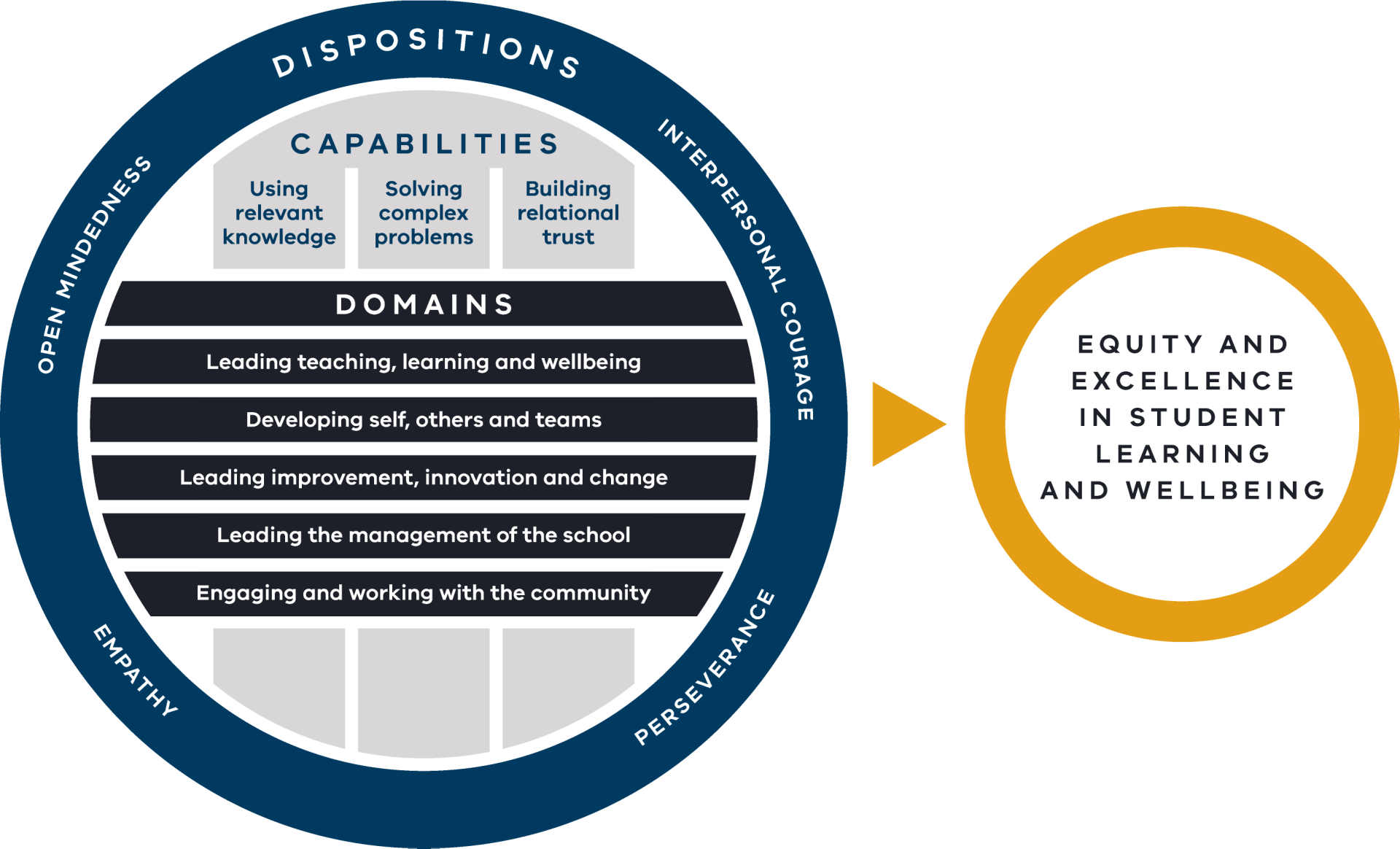Academy Leadership Excellence Framework
Dispositions
The four dispositions of educational leadership
The Academy Leadership Excellence Framework (ALEF) identifies four key leadership dispositions that are crucial for excellence as shown in the ALEF model. Dispositions are learned character traits that shape a leader's perceptions and behaviour.
This page provides a deep dive into these four dispositions, offering professional learning resources and reflection questions for Victorian school leaders.
The four core dispositions of great leaders
Discover the four dispositions proven to enhance the quality of school leadership.
- Open-mindedness: The willingness to be receptive to new ideas and information.
- Interpersonal courage: The strength to have difficult conversations and make tough decisions for the good of the school community.
- Empathy: The ability to understand and share the feelings of others.
- Perseverance: The commitment to persist in the face of challenges to achieve a long-term goal.
Resources and reflections for schools
Engage with these resources to strengthen your leadership dispositions and foster a culture of excellence in your school.
Expert insights & video resources
Video resource: Watch the video below and download the video transcript to hear Distinguished Professor Emeritus Viviane Robinson explain how the ALEF dispositions are proven to make a difference in school leadership.
Reflect on your understanding of the dispositions
Open-mindedness
- How do you keep up to date with educational research and professional reading?
- When leading school improvement, or implementing changes in your school, how does this knowledge inform your decisions? How do you communicate the rationale to your community – staff, students, parents?
- I ensure that staff in my school have access to the relevant and up to date knowledge they need to lead key areas across the school.
- How do you know that leaders of learning areas in your school have the relevant knowledge of the subject content or pedagogy to effectively lead the work? How do you support them to do so?
Empathy
- Do you find that it is harder to empathise with some groups of students than others? What makes it difficult for you to show empathy with some groups?
- How do you balance being empathic with teachers who are having difficulty, while at the same time being firm about the need for improvement?
- How do you encourage colleagues to set aside prejudgments and be more empathic with those who frustrate them?
- Are there situations where you have shown excessive empathy? What happened as a result?
Interpersonal courage
- Do you consider yourself a courageous leader? What makes you think so? What happened as a result of your courage?
- What conditions enabled you to be courageous in one situation but not in the another?
- What supports/ tools could help you be more courageous?
- What supports/tools could you use to lead others be more courageous?
Perseverance
- Think of improvement efforts you have led. Did you and your team persevere until you reached the goal, or did you give up, switch to a different goal and get distracted?
- What encourages you to persevere in your professional role with something that is difficult, and what leads you to give up, or give it away?
- Think about a moment of ‘failure’ in your career, what impact did it have on you in the short term, then the long term. If you had the same situation arise, what would you do differently?
Resources and next steps
- Access downloadable resources on each of the three capabilities
- ALEF Home: Explore the full Academy Leadership Excellence Framework, including sections on Domains and Capabilities









